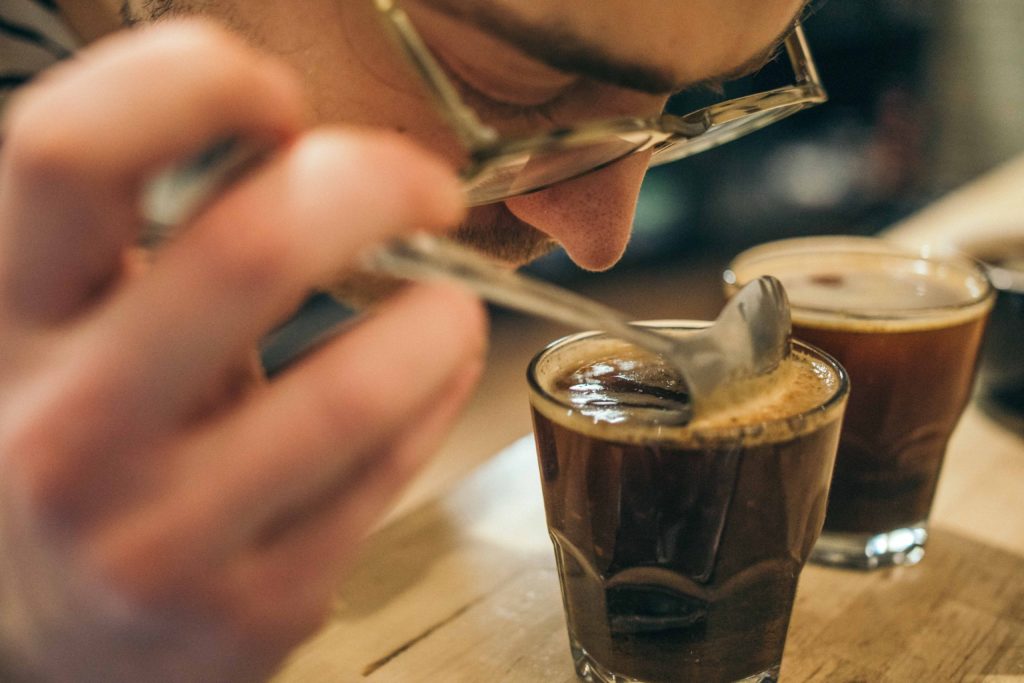For many, catching a whiff of a barbeque on a Saturday afternoon can conjure up memories of eating a snag on a Bunnings run – here’s why.
Perhaps it’s because snags are a much-loved Aussie favourite, or perhaps it’s something to do with how our brain responds to sensory experiences.
It’s common for certain smells to evoke precise memories, whether it be Vegemite on toast transporting you back to childhood or the smell of salt reminding you of trips down the coast.
Our senses are allowing us to remember something.
That possibility of tapping into the past with a simple sniff provides endless emotive opportunities to reminisce on what was. It lets us wind back the clock and laze in the pools of recollection.
A door to unlocking the past
Associate Professor Linda Byrne, Deputy Head of Deakin University’s School of Psychology, says that smell allows memories to emerge at the forefront of our mind and open a space to recreate the past for ourselves.
The way our brain is organised and its maturity is important here, as it reinforces the concrete links memory and emotion have in relation to scent processing.

“In terms of our senses, olfaction, that is, our sense of smell, is somewhat unique,” she explains. “It’s the oldest of our sensory systems, and unlike other senses, odour information passes directly into the hippocampus and amygdala, brain structures associated with memory and emotional processes.”
A/Prof Byrne suggests that as a result of these brain structures, we have the ability to dive deeper into our memories because our nose has our back.
As she says, “the link between smell, memory, and emotion can be so powerful that you may be able to remember events, people or places in tremendous detail.”
Emotive connections and impacts
During childhood, it’s common to learn about smell and which ones to avoid for the sake of safety. To alert them, parents and caregivers often encourage their little ones to recognise the smell of smoke to frighten them into action during life-threatening situations.
However, with the development of trauma occurring due to unsafe family environments or external situations, not everyone’s ‘smoke’ is escapable. Perhaps it’s a family member’s cologne or the metallic aroma of warfare; even though the threat might not be present, fearful emotions can still arise.
“We know that humans tend to remember negative events more than positive events,” A/Prof Byrne says. “If we add smell to the mix, it tends to reinforce this. As a result, for some people this can lead to potentially harmful associations.

For example, soldiers who have witnessed or experienced traumatic events during conflict can have frightening flashbacks triggered by a certain smell.”
While the psychological impact of remembering traumatic memories is clear, we should also consider the consequences of losing olfactory functioning.
A/Prof Byrne notes that while it may be thought of as unlikely to lose one’s sense of smell, “it’s not uncommon for people who have sustained a head injury in a car accident or fall to lose their sense of smell,” which can have serious ramifications for the individuals concerned.
A/Prof Byrne invites us to consider the words of her patients: “I’ve had clients who have told me how sad it is they can no longer smell the scent of their partner’s aftershave, or their mother’s cooking.”
This highlights how smell acts as a tie to our world, working to establish and maintain important social connections, the absence of which can be difficult to navigate. “It can be a tremendous loss for some people,” A/Prof Byrne says.
For the future
The extraordinary sensory capabilities of the nose may be able to assist us in early intervention of memory disorders like Alzheimer’s. This provides practitioners with hopes for the future as patients can make efforts to alter their lifestyle in order to protect their ability to recall, before deterioration has occurred.
Although it can be difficult to discern, or for medical staff to ‘see’, loss of smell does provide a framework to recognise symptoms of the early stages of memory decline.

“Early identification of changes present an opportunity to instigate lifestyle changes which we know can help protect against cognitive decline, such as exercise, sleep hygiene and diet,” A/Prof Byrne says.
“There’s also some novel research into ‘smell training,’ which has helped some groups improve their sense of smell. But it is still untested in terms of how it might assist people with cognitive decline.”
So does smell actually improve our quality of life, and if it so, how? If it is so closely entangled with memory and emotion, it must serve some kind of beneficial purpose, right?
A/Prof Byrne believes that, “for most people this would be true,” as smell once played a vital role in securing our safety, and, while this may have changed, it now allows us to develop our relationship to smell in a modern context.

“Our sense of smell, from an evolutionary perspective, helped us to identify predators (we can only imagine what sabre tooth tiger poo might have smelled like!), avoid danger such as consuming spoiled food, and strengthened our social bonds.
“While the threat of sabre tooth tigers may have subsided, our sense of smell may help us avoid modern day threats such as leaving the gas on. And of course, experience the more positive memories evoked by the smell of our favourite food or flower.”
So, next time you are craving a snag, perhaps consider indulging for old times’ sake.
Maddie Brake
Staff writer



